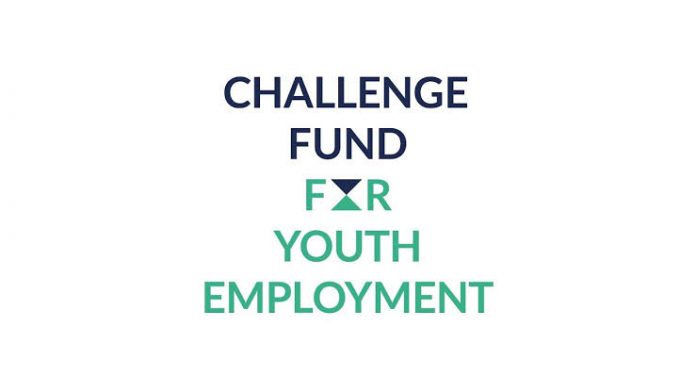Challenge Fund for Youth Employment (CFYE)
The Challenge Fund for Youth Employment (CFYE) is calling for solutions to create, match, or improve jobs for youth in Egypt, Kenya, Morocco, Nigeria, and Senegal. The CFYE is a 7-year flagship initiative by the Netherlands Ministry of Foreign Affairs and managed by Palladium, Randstad, and VSO.
Goals
The Fund aims to create a prosperous future for 230,000 young women and men in the Middle East, North Africa, Sahel & West Africa, and the Horn of Africa. This will be achieved by supporting youth employment initiatives in these regions. Initiatives will offer youth, particularly young women, opportunities for decent work that delivers better prospects for personal development, is productive, and offers a stable income, social protection, and safe working conditions.
How it works
The private sector, civil society, and knowledge institutions will be invited to submit proposals for initiatives to address specific challenges framed around creating scalable solutions for more and better jobs for youth. Solutions will be built around integrated approaches designed to bridge the mismatch between the demand for high-quality jobs and the supply of skilled labor. They will be aligned with the aspirations of young women and men in the regions.
Support

Technical support will be available for applicants throughout the process. The Fund Manager will organize physical and online information sessions for potential applicants. Interested parties are welcome to contact the Fund Manager to discuss ideas and seek guidance or support for concept note development. Once projects are selected for implementation, tailored technical support will also be made available to maximize the delivery of results.
Who can apply?
There are no restrictions as to who can apply to the Fund. Ideas are invited from private sector organizations, civil society, and knowledge institutions or from a consortium involving two or more partners. Regardless of the status of the applicant, all concept notes and business cases will be assessed against the same criteria.
Since proposed initiatives should have a clear pathway to decent work for youth, both the youth themselves and employers will be involved in the design of the project. All projects will need to report on their results and the financial contributions made by the Fund will be clearly linked to the achievement of those results.
In addition, the Fund is looking for sustainable and scalable initiatives implemented by partners who will be able to contribute on average two-thirds of the total project budget.
Principles
Actively targeting women
The Challenge Fund for Youth Employment makes a deliberate point of creating equal opportunities for young women in the job market; we have an explicit gender component to ensure that 50% of the young people reached by the Fund are young women. Analyzing and understanding the gender dimension of youth unemployment is critical, and we require Implementing Partners to present a targeted strategy for ensuring women are not just considered and included but actively benefit from their project.
The Fund is aligned with the Netherlands Ministry of Foreign Affairs policy mandate to strengthen the economic role of women, both as entrepreneurs and employees. This is based on the understanding that investing in women’s future is smart economics. An explicit focus on gender equality and women and girls’ empowerment is also critical to drive progress towards achieving the Sustainable Development Goals, especially Goal Five: Achieve gender equality and empower all women and girls.
The Role of the Private Sector
We actively welcome partnerships and consortium responses to this challenge. While we welcome ideas and responses from any organization, we are looking for market-based solutions, tailored to the specific context of the Call. There is therefore an expectation that all projects will involve at least one partner from the private sector and at least one national partner or a partner with a local operating presence.
Private sector companies, and particularly SMEs are the backbone of most economies. In the target regions, they are the engine driving economic growth and job creation, in both formal and informal markets. What’s more, the potential for innovation in the private sector is infinite. We will need to rely on pragmatic ideas to spur new approaches to the existing and worsening challenge of youth unemployment. The private sector is the most efficient and effective mechanism through which to focus, develop, and test solutions that respond to this persistent, unsolved challenge.
Youth Engagement
Actively involving youth and especially young women, is a pre-requisite for being considered as an Implementing Partner of the Fund. Interventions should be able to demonstrate how young people were involved in developing the proposed solution and how these solutions are likely to contribute to the goals and aspirations of those youth who will ultimately end up in employment through the successful implementation of the intervention.
Additionality
Given the emphasis on market-based solutions, we will only consider working with Implementing Partners to present ideas that would not be possible without support from the Fund. We will not fund existing operations, or ‘business as usual’. We are interested in supporting solutions that would not be possible within the same timeline or on the same scale without support from the Challenge Fund.
We will therefore assess the level of additionality as part of our selection criteria. This includes looking at what type of project is being proposed, assessing the level of risk involved, and the potential for employment opportunities for youth, especially women. Based on this assessment, we will offer Implementing Partners the co-investment and technical assistance support from the Challenge Fund. It is expected that the contribution of the Challenge Fund, either through co-investment, technical assistance, or a combination of both, will range from 10% to 50% of the total project budget.
The minimum contribution by the Fund will be Euro 100,000 and there is an expectation that projects will provide prospects for at least 250 youth.
Deadline: September 4, 2023
Click HERE To Apply




